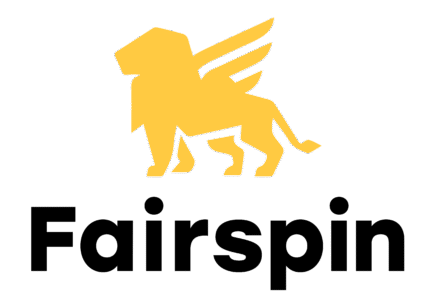Wondering how much the gambling tax is in Estonia and whether your casino winnings are taxable?
In this guide we explain how gambling tax works in Estonia, what the rules are for players and licensed operators, and how an Estonian gambling licence affects where and how tax is paid on casino and betting revenue.
Tax on Player Winnings in Estonia
In Estonia, ordinary gambling winnings are generally treated as tax-free income for private individuals. Prizes from online casinos, sports betting, poker or lotteries do not usually count as taxable income under Estonian law, as long as you play as a recreational customer and not as a professional business activity. Official guidance from the
Estonian Tax and Customs Board and the Gambling Tax Act confirms that the gambling tax is paid by operators, not by regular players.
Winnings remain tax-free even if you withdraw them several times or move them between different casino accounts. The key exception would be if gambling becomes your systematic professional income – for example, if you run a poker staking business or organised betting syndicate. In that case, the tax office could theoretically treat your profits as business income and apply normal income-tax rules.
For most readers of this page, the practical takeaway is simple: when you play at licensed Estonian online casinos, you don’t file any separate “gambling tax” on your winnings. The operator takes care of the tax obligations in the background.
Gambling Tax for Estonian-Licensed Operators
While players enjoy tax-free winnings, licensed operators pay a monthly gambling tax on their revenue. For remote casino and betting, the tax is calculated mainly on gross gaming revenue (GGR) – the amount received from bets minus payouts. At the time of writing, the standard rate for most remote gambling products is 6% of GGR, with lawmakers occasionally debating future adjustments to keep Estonia competitive in Europe.
In practice, this means that if an Estonian-licensed online casino receives €1,000,000 in stakes and pays out €900,000 in winnings during a month, its GGR is €100,000. A 6% gambling tax on that GGR would be €6,000. Detailed rules and forms are published on the state portal eesti.ee and on the Tax and Customs Board website.
One additional advantage for companies is Estonia’s corporate tax model. Undistributed profits are not subject to corporate income tax; tax is charged only when profits are paid out as dividends. For gambling operators this means that, after paying gambling tax, they can reinvest retained earnings tax-free into marketing, technology or expansion.
Different Tax Rates by Product
Not all gambling is taxed in the same way. Slot machines in land-based casinos, table games, lotteries and commercial lotteries have their own specific formulas and fixed per-machine or per-table components. These details mostly concern operators, but they help explain why some games or bonus structures are more attractive for licensed brands than others.
If you are interested in the regulatory side, our Estonian casino licence guide and online casino licences explained articles walk through the licensing process, compliance rules and technical requirements for operating in Estonia.
Estonia Gambling Licence and Player Protection
Any company that wants to offer online casino games, sports betting or lotteries to Estonian residents must obtain both an activity licence and an operating permit from the Tax and Customs Board (Maksu- ja Tolliamet). This licence framework ensures that only vetted operators can appear on the official
list of legal gambling operators.
For players, an Estonian licence means several things: clear rules on KYC and AML, responsible-gambling limits, a dispute-resolution mechanism and regular supervision by the regulator. When you pick casinos from our overview of
Estonian-licensed casinos,
you are effectively choosing brands that meet these local requirements and contribute gambling-tax revenue to the state budget.
Foreign Licences, Tax and Estonian Players
Many popular casinos that accept Estonian players operate under foreign licences, such as Curacao, MGA (Malta) or newer jurisdictions like Anjouan. These brands do not pay gambling tax in Estonia; instead, they pay licence fees and local taxes in their own jurisdiction. For example, Curacao-licensed operators often face a very low corporate tax rate on profits, and no VAT on gambling services, making it an attractive offshore hub.
Importantly, Estonian players generally still do not pay personal tax on winnings from foreign casinos. The operator’s tax obligations remain abroad, while the player’s profits are treated similarly to local winnings. That said, foreign operators are not allowed to actively target Estonia without permission, and there is less local protection if a dispute arises.
If you want to explore international options, start with our dedicated guides: Is it legal to play on foreign casinos in Estonia?, our list of foreign casinos for Estonian players,
the overview of Curacao-licensed casinos and the guide to Anjouan licensed casinos.
Comparing Tax Regimes by Licence
From an operator’s perspective, the choice between an Estonian licence and offshore licences is largely a question of tax rate versus reputation. Estonia combines a moderate GGR-based gambling tax with zero tax on retained corporate profits and a strong reputation within the EU. Curacao and similar jurisdictions offer very low corporate tax and flexible regulation, but sometimes less prestige with banks or regulators in other countries.
From a player’s point of view, however, the tax regime mostly affects the quality of offers rather than the tax on winnings. Lower taxes can make it easier for casinos to offer aggressive bonuses, cashback and VIP rewards. Higher-tax but stricter regimes, like Estonia, often focus more on long-term sustainability, AML checks and responsible-gambling tools.
If you want a deeper dive into how different licences compare, see our online casino licence comparison and the broader casino guides section.
Practical Tips for Estonian Players
- Choose licensed brands first. Start with casinos that hold an Estonian licence or at least a strong international licence and have solid reviews.
- Confirm that winnings are paid in full. Check the bonus terms, wagering requirements and withdrawal rules, especially on foreign sites.
- Keep records of large wins. Even though normal winnings are tax-free, it is wise to keep screenshots or account statements for very big payouts.
- Use responsible-gambling tools. Deposit limits, loss limits and self-exclusion options are available at all reputable casinos, especially those licensed in Estonia.
For a curated overview of safe and reputable options, visit our lists of Estonian-licensed casinos and foreign casinos for Estonian players.
Disclaimer – Not Personal Tax Advice
This page gives a general overview of gambling tax and the Estonia gambling licence based on publicly available information. Tax rules can change and personal situations differ, so nothing here should be considered legal or tax advice. If you have substantial gambling income or operate a business, always double-check the latest rules with the Estonian Tax and Customs Board or consult a qualified tax adviser.
Gambling Tax & Estonia Gambling Licence – FAQ
How much is the gambling tax in Estonia?
For online gambling, Estonian-licensed operators currently pay a gambling tax of 6% on gross gaming revenue (bets minus paid winnings). Lawmakers have discussed changes that could adjust this rate in the coming years, so operators should always check the latest rules from the Estonian Tax and Customs Board.
Are casino winnings taxable for players in Estonia?
For recreational players, casino and betting winnings from Estonian-licensed operators are generally treated as tax-free and are not subject to personal income tax. The gambling tax is paid by the operator instead of the player. Only in rare cases, such as professional gambling income, might the tax office look at winnings differently.
Do I pay tax on winnings from foreign online casinos?
Estonian residents usually do not pay income tax on gambling winnings, even if they come from foreign online casinos. However, offshore casinos are not allowed to actively target Estonia without a local licence, and players have less protection if something goes wrong, so it is safer to choose regulated sites.
What is the Estonia gambling licence?
The Estonia gambling licence is an authorisation issued by the Estonian Tax and Customs Board that allows a company to offer casino games, betting or lotteries legally. Licensed operators must meet strict requirements on capital, AML and player protection, and they pay gambling tax and corporate tax on their operations in Estonia.
Who actually pays gambling tax in Estonia – players or casinos?
Gambling tax is paid by licensed operators, not by individual players. The tax is calculated on the operator’s gross gaming revenue or ticket sales, depending on the type of gambling. Players simply receive their winnings; they do not file separate gambling tax returns.
What does “GGR tax” mean for Estonian gambling operators?
GGR stands for gross gaming revenue, which is the total amount received in bets minus paid-out winnings. In Estonia, the main gambling tax on remote casino and betting is a percentage of GGR, currently set at 6%. This is separate from corporate income tax, which only applies when profits are distributed as dividends.
Are gambling winnings always tax-free in Estonia?
For most casual players, gambling winnings are effectively tax-free. However, if gambling becomes a long-term professional activity or resembles business income, the tax office could treat part of the winnings differently. Anyone in this situation should seek personalised tax advice.
Is this article legal or tax advice?
No. This page gives a general overview of gambling tax and the Estonia gambling licence for informational purposes only. Tax rules can change and everyone’s situation is different, so for binding advice you should always check the latest information from the Estonian Tax and Customs Board or consult a qualified tax adviser.




